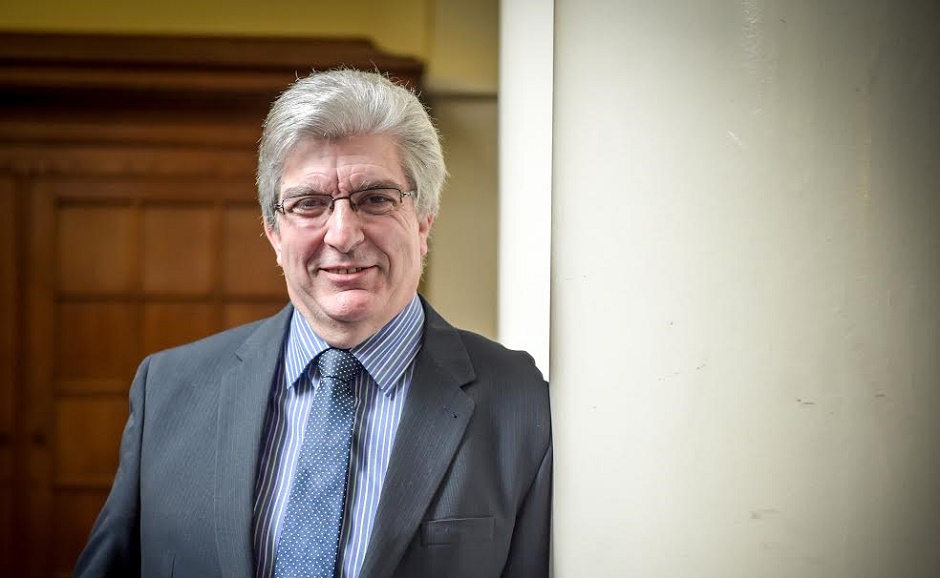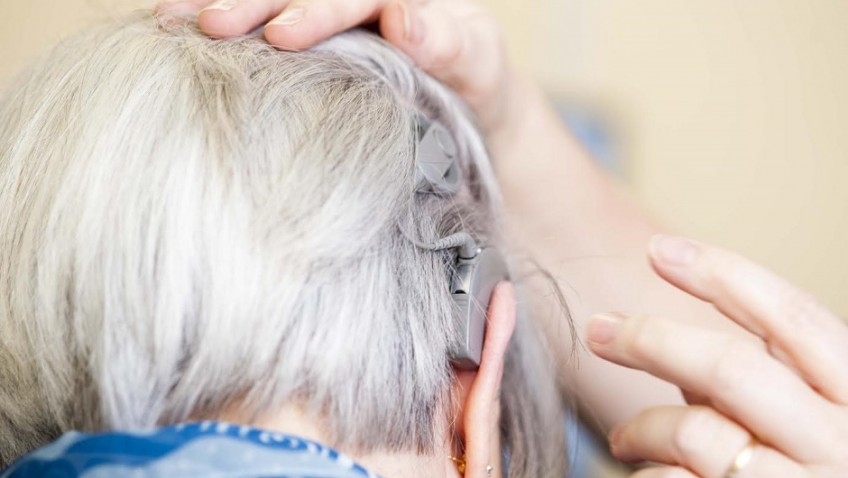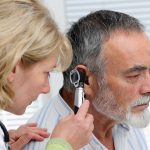A cochlear implant is a device which restores hearing to individuals who have a severe to profound hearing loss. A cochlear implant consists of internal and external components.
The internal component, also known as the receiver/stimulator, is inserted during an operation which lasts approximately 2 hours. The external component, known as the speech processor, allows the internal component to receive sound and is generally fit 3-4 weeks after surgery.
February 25 is International Cochlear Implant Day when people around the world will celebrate the fact they can hear again thanks to this advanced technology, which transforms lives for the better.
As well as a cause for celebration, the 21 cochlear implant centres in UK and Ireland will be holding local events to raise awareness that this safe surgery is a viable alternative, available on the NHS, when hearing aids are no longer enough.
In the UK, hearing loss affects almost two-thirds of the older population and is now the prevalent disability for men and women aged 70-plus. However, less than 10% of adults who would qualify for a cochlear implant are receiving one.
Part of the reason is that older people believe that there is an age barrier to acquiring an implant. But this is not actually the case, says Mariska Leighton, marketing manager UK, Ireland and South Africa for Cochlear Europe Limited.
“Older people aged 65 and over often think that they won’t be eligible for this advanced technology, which could transform their lives. Research demonstrates that cochlear implants can provide good outcomes in terms of hearing, self-confidence, autonomy and all around quality of life, regardless of age,” she says.
There are many wonderful stores about has this technology has changed the lives of the profoundly deaf and we have been sent one which is included below.
Nigel Williams
Nigel had been deaf for 22 years before he was implanted in 1994, aged 39. It was only then that he heard his children’s and wife Helen’s voices for the first time. His boys were 10 (Anthony) and six (Matthew).
“The experience of being ‘switched on’ was without doubt one of the most amazing and life changing experiences I have ever had and I can honestly say that from that day on I have never regretted the decision I made and only wish it had happened a lot sooner.
“Over the years I felt that I had missed out on so many things by not being able to hear,” says Nigel. “Easy relaxed conversations were difficult and not being able to hear my children laugh or cry, or hear their first sounds or first words was a daily reminder of what I had to live with. I was also aware that career prospects were limited as a direct result of being deaf and the frustration at not being able to achieve what I felt was my full potential was difficult to cope with at times.”
Nigel was in his final year of GCSEs when he contracted meningitis and went into hospital being able to hear and came out two weeks later in a world of silence. He completed his GCSEs, successfully taught himself to lip read and went on to do A-levels. After school he found work with the NHS as a contracts assistant and in his mid-20s he met and married his wife Helen.
It was not easy. “Being deaf there is a constant struggle to try and follow what is going on around you, the dependence on other people to always try and help you understand and the feeling of isolation and being cut off from everyday sounds and activities, especially your own voice,” says Nigel.
And so receiving a cochlear implant which took place at the University Hospital of Wales in Cardiff has been life changing, with the benefits improving as time went on.
Nigel remembers in those first early weeks and months finding it difficult to learn to hear again. “The constant amount and level of sound was at times overwhelming and it was only as I began to distinguish different sounds and gradually learn to hear again that everything started to fit into place.
“However as I became more relaxed and familiar with my new hearing I started to rediscover the joy of just listening – a walk in the park now meant birds singing, children laughing and playing and people chatting away nearby.
“To know someone has entered a room or is able to attract your attention means that you can relax and not have to keep wondering if you are missing something.”
Soon after receiving his implant Nigel became a founder member of the South Wales Cochlear Implant Support Group. He later became chair of the National Cochlear Implant Users Association and a trustee and is currently chair of Hearing Link. (www.hearinglink.org)
For more information, visit www.iwanttohear.com





